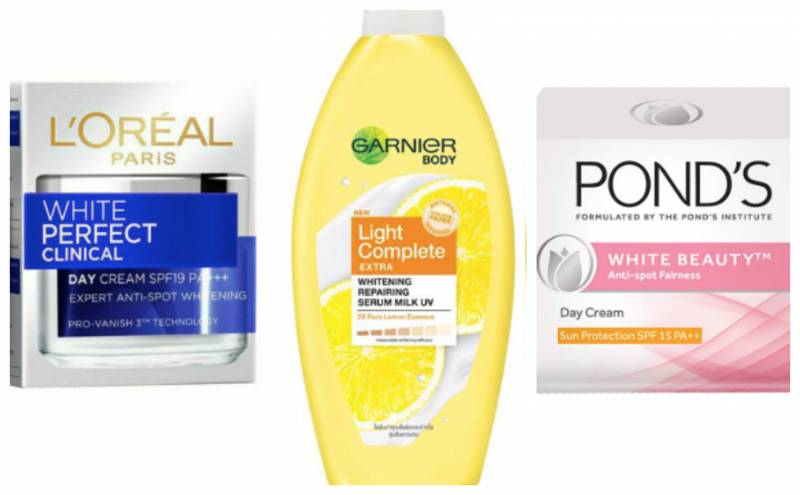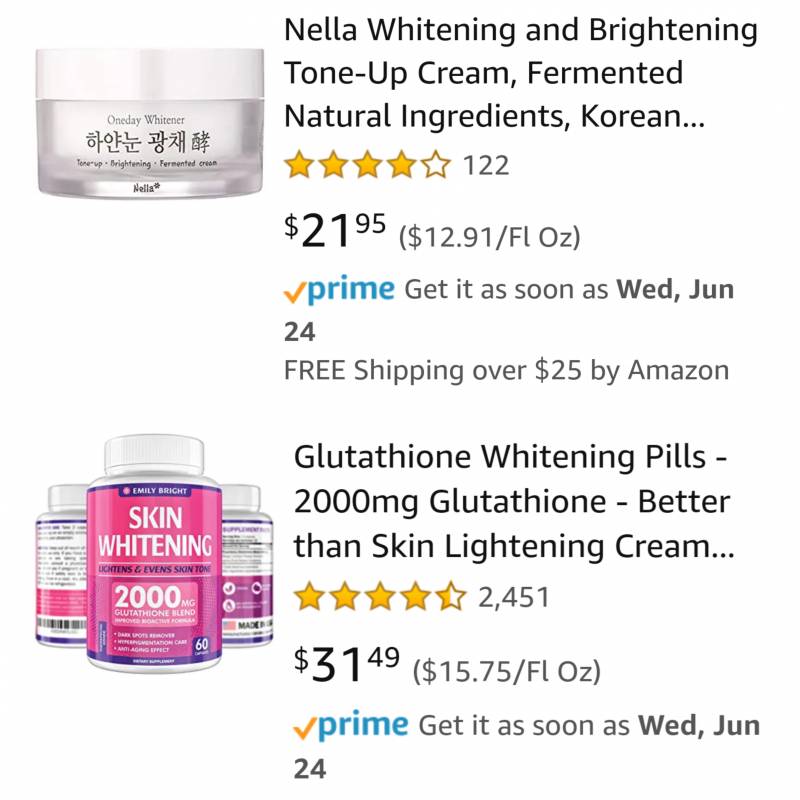Last weekend, Johnson & Johnson announced it would no longer sell skin-lightening products. The company will be axing Neutrogena’s Fine Fairness line and Clean & Clear’s Clear Fairness creams in Asia, the Middle East and India. “Some product names or claims on our dark spot reducer products represent fairness or white as better than your own unique skin tone,” the company said in a statement. “This was never our intention—healthy skin is beautiful skin.”
Johnson & Johnson’s commitment to discontinuing these products sets a much-needed precedent for the beauty industry. It comes just weeks after social media users called out Indian celebrities who had created social media posts in support of Black Lives Matter, but also previously endorsed skin-lightening creams. The actresses included Priyanka Chopra, Sonam Kapoor, Disha Patani and Kiara Advani. All of them were advertising the creams of brands that are household names in America—L’Oréal, Ponds and Garnier.
Nivea—a company that came under fire in 2017 for a British ad campaign that featured the phrase “White is purity”—is also a major player when it comes to skin-lightening products. As is Unilever, the parent company of Dove—a brand known for pushing a message of inclusivity in the United States.



